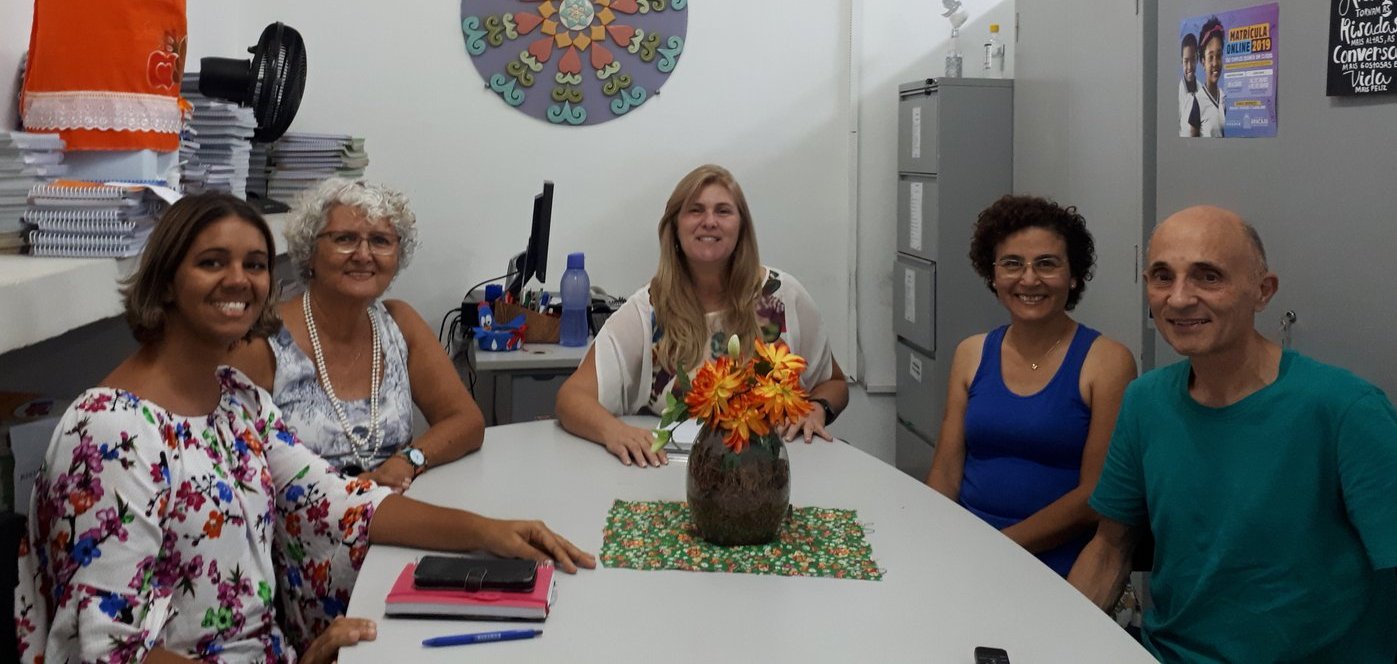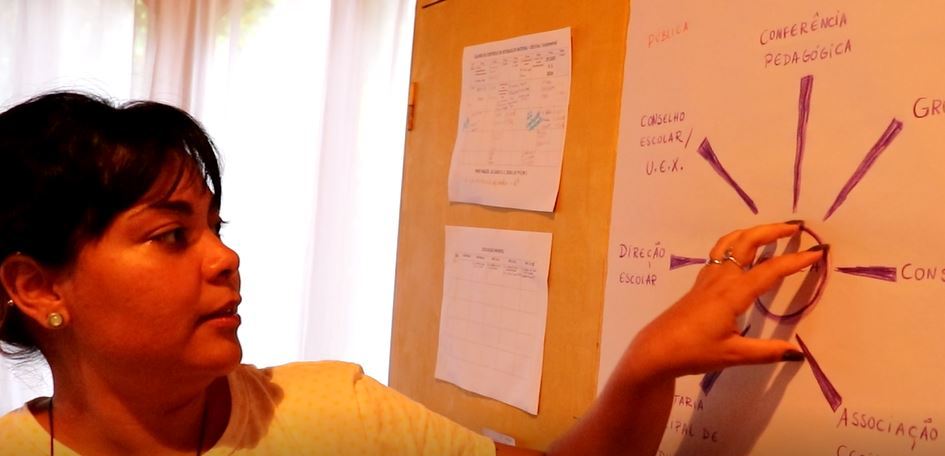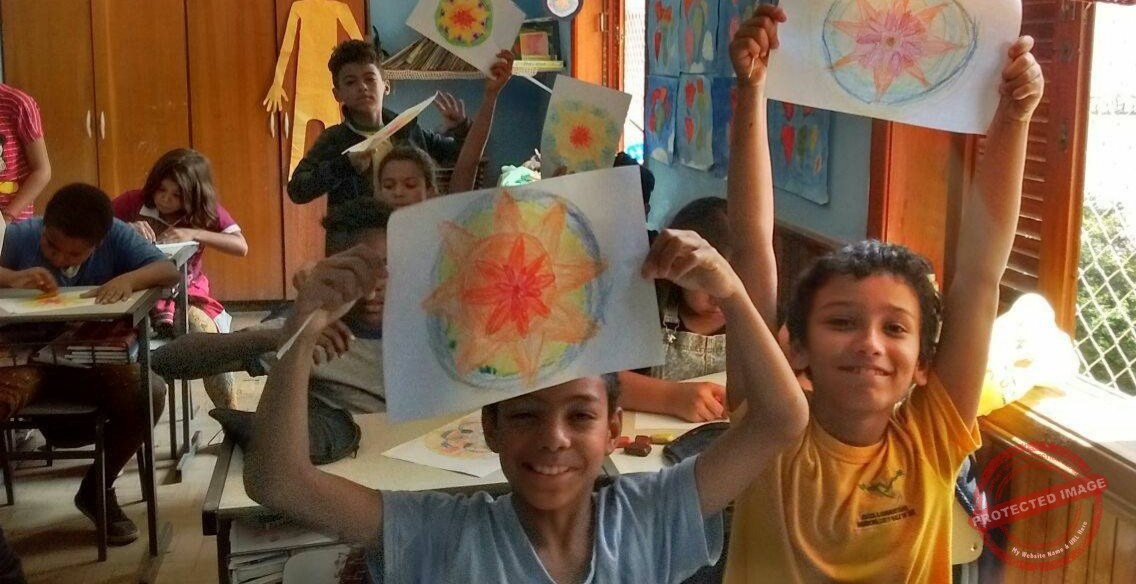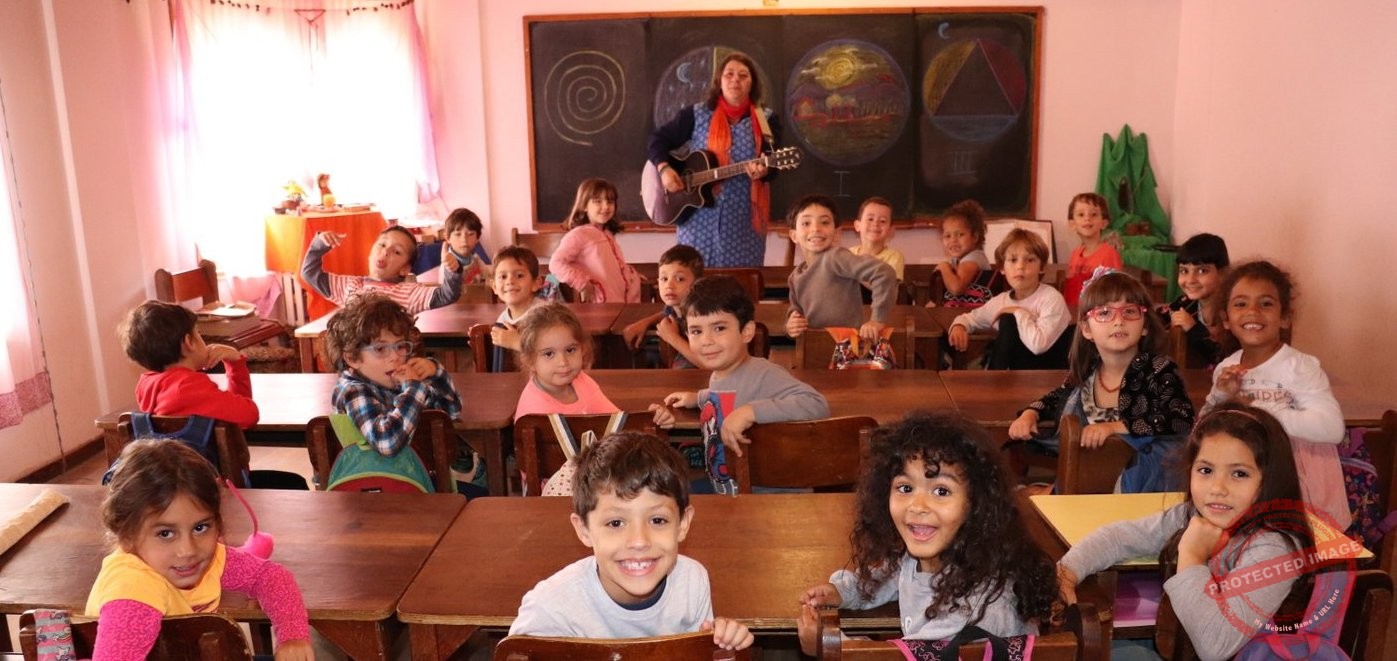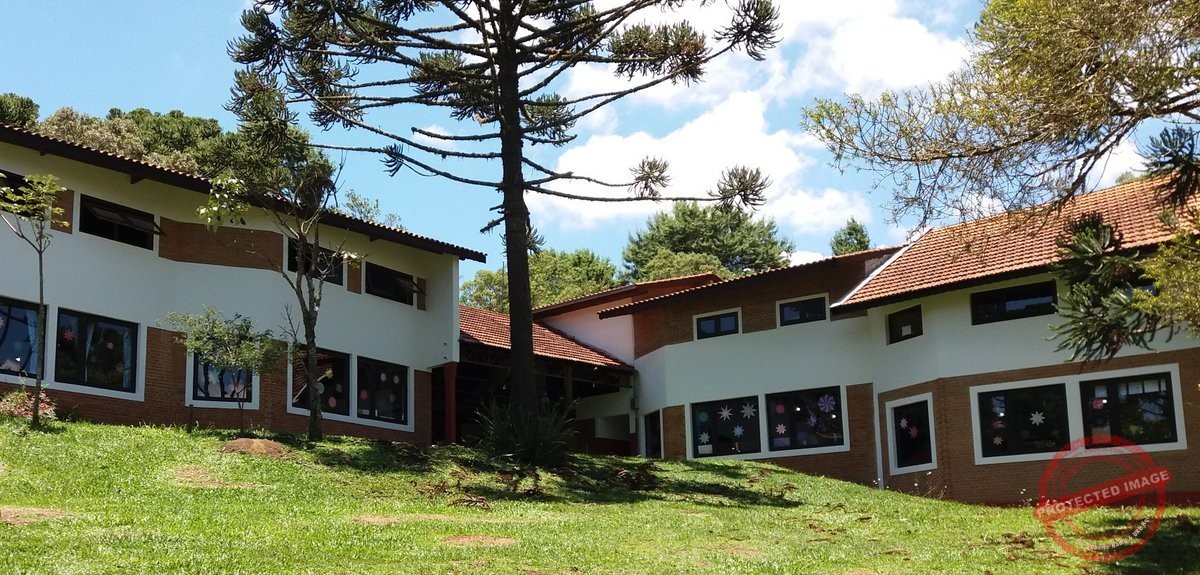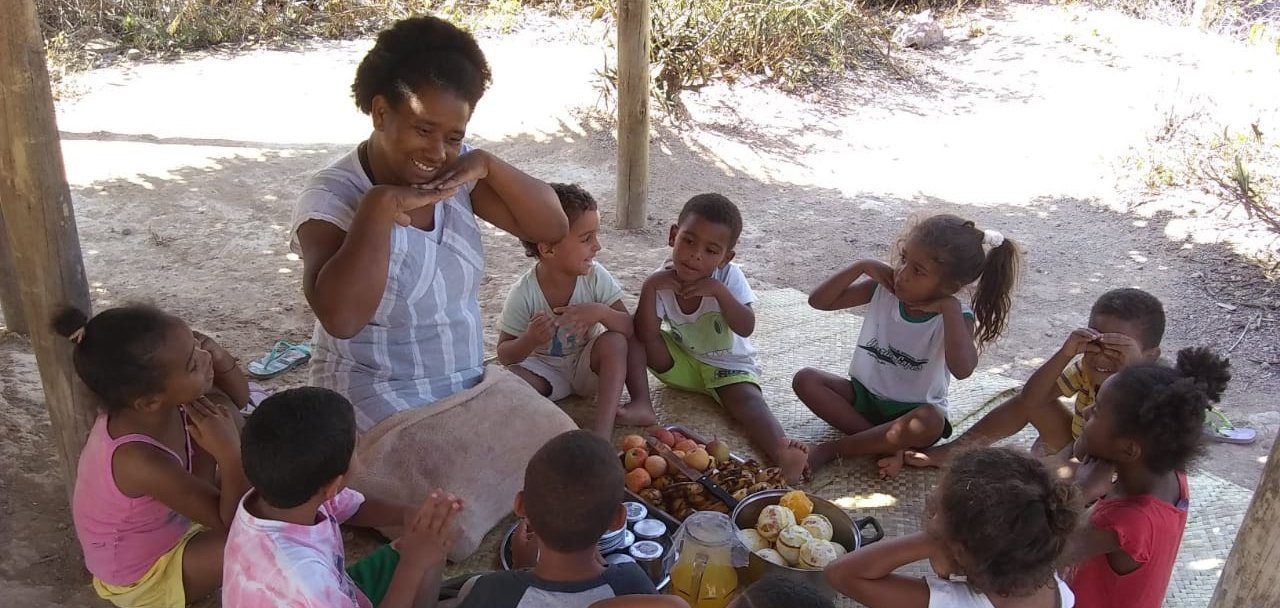[print-me target="body"]
The Waldorf Pedagogy
in public school
history – challenges – perspectives
by Rubens Salles and Rosineia Fonseca
Mata de São João – BA
Imbassai District
Escola Casa da Mata is an associative school, founded about ten years ago, which faced difficulties to maintain itself, and so that it could continue to function, it is being municipalized. We spoke by phone with Dalva Soares, the school's manager, and with Cristina Del Rey, who has been the school's tutor since 2016, and who previously worked for several years as pedagogical coordinator.
highlights
1 – The municipalization of a Waldorf school, which was in serious danger of closing down after several years of activity, is undoubtedly good news. It shows the recognition by the government of the value of the work that has already been carried out, trust in the school team and respect for the community and families that support this philosophy of education for their children.
2 – The strength and determination of a community created from a Waldorf school, by teachers and parents who have already experienced the value of this pedagogy, is capable of finding ways to keep a school alive in their community.
Some basic data about the municipality
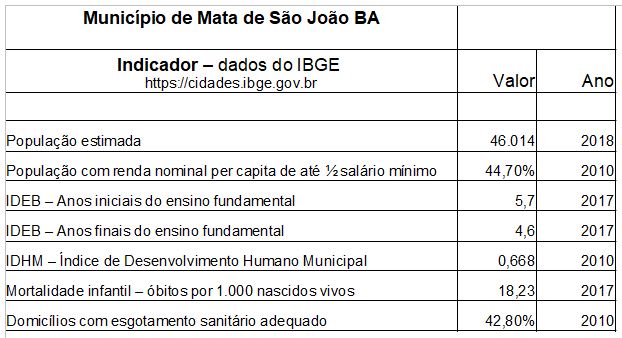
Address – Rua da Igreja s/n, Imbassaí – Mata de São João BA
[email protected]
Facebook
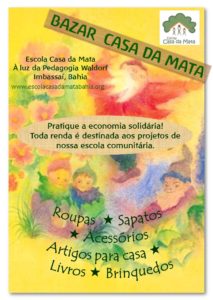 Escola Casa da Mata was created about ten years ago, as an associative school, always seeking to raise funds to maintain the school and even had classes until the 5th year in 2016. At that time, there was already a partial agreement with the city hall , which then paid for part of the staff's salaries, but was not enough to maintain the school. In 2017, the school had few students, only with early childhood education classes, as the association was going through a fragile moment with the departure of some of the founders and in the process of closing its activities.
Escola Casa da Mata was created about ten years ago, as an associative school, always seeking to raise funds to maintain the school and even had classes until the 5th year in 2016. At that time, there was already a partial agreement with the city hall , which then paid for part of the staff's salaries, but was not enough to maintain the school. In 2017, the school had few students, only with early childhood education classes, as the association was going through a fragile moment with the departure of some of the founders and in the process of closing its activities.
As there was a group willing and very concerned about maintaining the educational work in the community, they decided to propose to the city hall the municipalization of the school. A project was then prepared by the pedagogical body and the parents to be presented to the city hall (annex).
There were some meetings and the city government established as a condition for municipalization that they managed to register at least 80 children whose families were interested in enrolling them in early childhood education. There were only 17 children at that time.
dalva – Then, we started to do a campaign going to the communities. I made a list to register the children by age, date of birth, affiliation, address, seeing who was interested in studying at this school. It explained that we were applying for enrollment, that we needed to have an x number of children for the school to be municipalized. After two months, from October to December, we had more than ninety on the list and we were able to fulfill the requirements for municipalization.
In order to justify the quality of Waldorf Pedagogy, the group was able to demonstrate that students who had attended school up to the 5th grade were doing very well in elementary school in other schools in the municipality. There was decisive support from the mayor Marcelo Oliveira and the secretary of education, Maricélia Rodrigues. Land has already been made available for the construction of the new school, as it is currently housed in a rented property.
Christina – We are continuing the school, but it was embraced 100% by the city hall, and maintaining our autonomy to carry out Waldorf Pedagogy.
dalva – We had a meeting with the secretary and the mayor and we got a space, a plot of land here on the other side of our school, where the city government will build our headquarters. They gave us autonomy to plan the rooms, the structure of the school. Then we will pass the project to the city hall to be evaluated by them. This work should start this coming semester, as the mayor wants us to start at the new school in 2022.
Last year, the city government published a public notice for hiring teachers, specific to the school, having as a prerequisite training and experience in Waldorf Pedagogy, which guaranteed the maintenance of the quality of the work. (annex – in the official journal – page 15).
As we have seen in other initiatives, the group faces difficulties brought about by the cultural shock they experience when they join the public network, as it is a very different reality from the independent associative school.
Christina – For the time being, we are officially operating as an annex to the municipal daycare Aquilino Dias de Carvalho, as there is still no registration of the school, but with the support of the mayor who hopes to make it “a school of reference for education in the municipality”, according to your words. There is a very active group of parents and the goal is for the school to have elementary school again soon.
Video made in thanks to the mayor for the municipalization of the school
As with other initiatives that we know of, there are difficulties in obtaining from the city hall the most appropriate material for the practice of Waldorf Pedagogy, as it is not possible to receive better materials, or different materials from other public schools in the municipality. The school relies on the help of parents for this.
dalva – Today, what we use as pedagogical material is not available in the city hall's storeroom, so all the pedagogical material is made with the help of parents, with thrift stores and other activities. All the money raised is turned into a benefit for the school to buy teaching material: chalk, felt, everything that is needed. We are learning to deal with this new reality and overcoming the challenges. With this tripod here at school, with parents, pedagogy and management, we are learning a little more and more.
See the opinion of some parents about the school and its municipalization (video transcripts produced by the school)
Claudemar da Silva – It's an innovative pedagogy for me. I am a son of here, I was born here in the region, in Praia do Forte, and I had never seen such a different pedagogy, which values my concepts, nature. It's a surreal welcome here, and every contact he (the son) has with the teachers and with nature, that's what I cherish.
Alda Mattos – I got to know pedagogy and fell in love. I thought that the school treats the child with all love and affection, and what we have to have at school, in addition to education, the main element is love. I thought it was great (the municipalization), because the population will get to know a new pedagogy, a new way of dealing with children, and it will bring more development to our village, as it is already bringing. A lot of people didn't know, and they are getting to know, falling in love, seeing how different it is to treat children with love, with humanity.
André Papi – With the municipalization of the school, I think everyone won. It's a very good thing and I think the city hall of Mata de São João made the right choice and, without a doubt, the growth is for everyone, the school, the students, the people who are involved, because this Waldorf Pedagogy is differentiated, and everyone is growing and coming together to make the school better and better.
Numma Lobeto – I think it is interesting that the school becomes municipal, because then it will give access to several different social classes, and I understand that Waldorf Pedagogy is oriented towards this, towards the union of everyone, without prejudice of anything. I actually thought it was great, because nowhere did I see Waldorf Pedagogy as municipalized.


